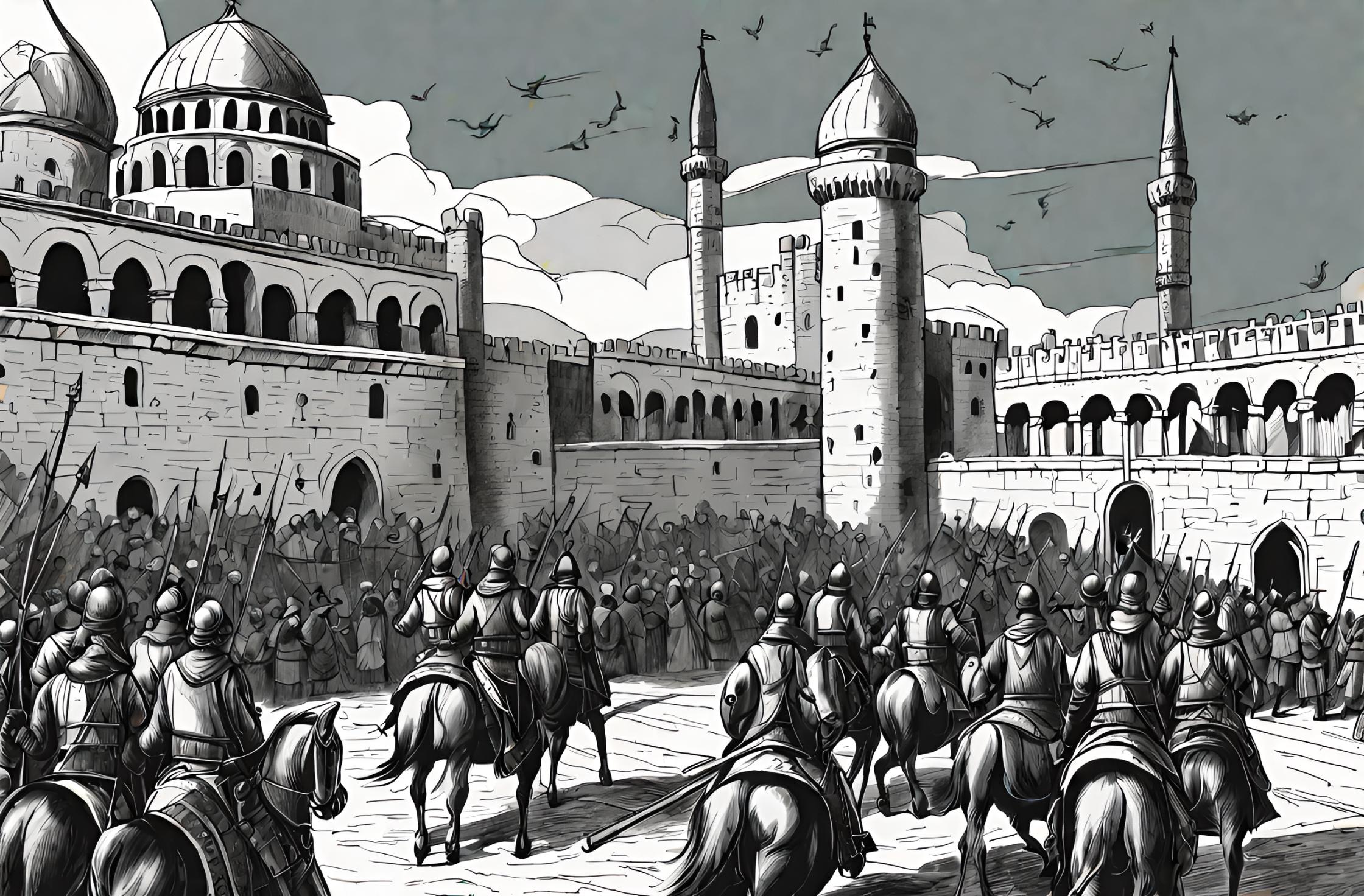Flashback to May 30
World History

On 29 May 1453, a significant historical event took place that reshaped the course of history radically – the Siege of Constantinople. This decisive event marked the end of the Byzantine Empire, paving the way for the establishment of the Ottoman Empire. When discussing historical events that significantly impacted world history, the Siege of Constantinople always holds a central position.
As the last vestige of the Roman Empire, Constantinople was also known as the gateway between Europe and Asia owing to its strategic geographic position. Its robust defenses were admired throughout the medieval world, but in May of 1453, they finally succumbed to the relentless pressure applied by the Ottoman Turks led by Sultan Mehmed II.
In the decades leading up to the siege, the power and influence of the Byzantine Empire had gradually declined, whereas the nearby Ottoman Empire had seen ongoing expansion and consolidation of power. By the time Mehmed II ascended the throne, he was determined to be the one to finally breach the walls of the city.
The intricate and well-thought-out strategy of Mehmed II was a significant factor contributing to the fall of Constantinople. Under his leader’s command, the Ottoman forces skillfully combined ground and sea attacks – a challenge considering Constantinople’s almost impregnable defenses. It was primarily the use of large cannons that made a significant impact on the city walls, with one particularly monumental cannon, known as the Basilica, catching the attention of historians.
By using his revolutionary artillery, Mehmed II was able to breach the city walls of Constantinople, fulfilling his ambition of capturing the fortified city. This innovative approach, coupled with the weakening internal state of the Byzantine Empire, played a pivotal role in ensuring the downfall of the city.
A notable figure who led Constantinople’s defense during its final days was Emperor Constantine XI Palaiologos. His bravery and gallantry, as he led his outnumbered troops against the much larger Ottoman forces, have become an intrinsic part of the legend surrounding the final fall of the Byzantine Empire.
The impact of the Siege of Constantinople was momentous, marking the end of the Byzantine Empire and leading to the establishment of Istanbul in its stead. This event marked a notable shift in power, resulting in the Ottoman Empire becoming a dominant force in world politics, cementing the sultan’s rule over large sections of Southeast Europe, Western Asia, and even parts of North Africa.
The Ottoman Empire’s economic and political influences were vastly felt across Europe after the seize. It played a significant role in the development of oriental trade routes and was indeed instrumental in the period of robust economic growth known in history as the ‘Age of Exploration.’
the Siege of Constantinople holds an unparalleled place in world history. Its fall led to a significant shift in socio-political circumstances, ending the era of the Byzantine Empire, sparking the rise of the Ottoman Empire, and opening a new chapter in world history. Strategically documenting the strategies used, the key participants, and the impacts on world history empowers readers to understand the transformation brought by the shift of power from the Byzantine to the Ottoman Empire. The memory of this pivotal date – 29 May 1453 – and its associated events are firmly etched in the annals of global history.
We strive for accuracy. If you see something that doesn't look right, click here to contact us!
Sponsored Content

Henry III follows brother…
On May 30, 1574,…

Irma Laplasse, Flemish farmer/Nazi…
On May 30, 1945,…

University church in Leipzig,…
On May 30, 1968,…

Latvia and Vatican sign…
The momentous event of…

Reuben Siegel laid cornerstone…
On May 30, 1909,…

Gibraltar adopts constitution.
On 5/30/1969, Gibraltar adopted…

